These 14 California legislators are getting two government checks a month

- Share via
Amid ongoing warnings about underfunded public employee pension funds, more than a dozen California state lawmakers are augmenting their $107,242 salaries by collecting retirement payments from previous government jobs, a practice that taxpayer activists condemn as “double dipping.”
A string of reports in recent weeks have predicted greater financial challenges for state and local governments in meeting the financial obligations of public pension systems. At the same time, taxpayer advocates are critical of policies that allow public officials to receive a government pension check while taking a salary from a different agency.
“The public never envisioned that kind of thing can be done, where you pile one check on top of another,” said Jack Dean, vice president of the group California Pension Reform.
Most lawmakers receive an annual salary of $107,242 in addition to tax-free per diem payments that averaged about $39,000 last year. But they don’t earn a pension for legislative service — voters approved a ballot measure in 1990 that stripped that benefit while also imposing legislative term limits.
Still, some lawmakers have retired from positions with cities, counties or the U.S. military that pay them a pension.
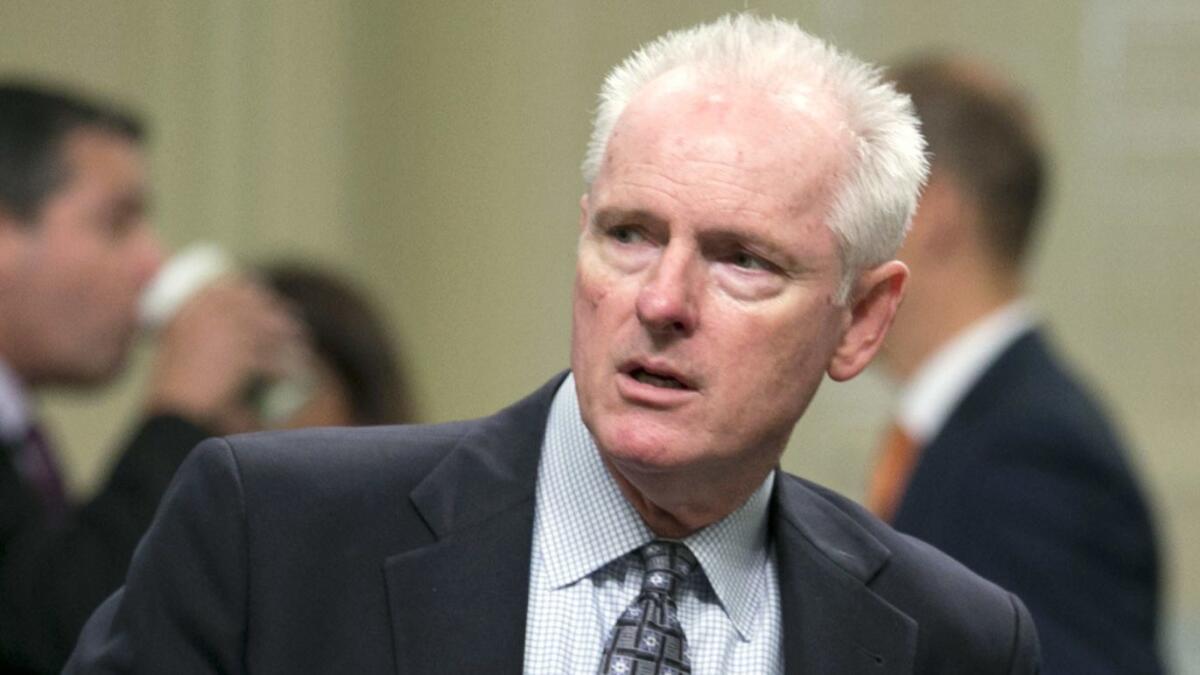
Assemblyman Tom Daly (D-Anaheim)
Annual public pension for previous job: $85,000
Prior government service: After his election to the Assembly, Daly retired at 58 as county clerk-recorder for Orange County.
Total annual compensation (minus per diem): $192,200
Defenders of the payments include Assemblyman Tom Daly (D-Anaheim), who receives his legislative salary in addition to an annual pension of $85,000 for 20 years in local government, including as the county clerk-recorder of Orange County.
Daly, who also served as mayor of Anaheim, retired from his county clerk job in December 2012 at the age of 58, just weeks after he was elected to the Assembly.
“After working two decades for the county, I earned a pension,” said Daly, one of 14 lawmakers now collecting a pension in addition to their state paycheck.
“A person receiving an earned pension should not have to surrender that benefit simply because the taxpayers in their community elect them to state legislative office,” Daly added.

Sen. John Moorlach:
(R-Costa Mesa)
Annual public pension from previous job: $83,827
Prior government service: Former Orange County treasurer and member of the Orange County Board of Supervisors with a total of about 19 years of county service.
Total annual compensation (minus per diem): $191,000
Sen. John Moorlach (R-Costa Mesa) supplements his legislative pay with $83,827 in yearly retirement payments from his time as Orange County treasurer and member of the county Board of Supervisors. He began drawing retirement at 59.
Moorlach said he took pay cuts when he left a private sector accounting job to be county treasurer, and again when he was elected to the Legislature in 2015. He could have made much more going back into the private sector but decided to serve the state as a lawmaker, he said.
“I don’t think I would have come up here [to Sacramento] if I didn’t have the benefit of the retirement check,” he said.
Most private sector employees don’t get to retire early, and even then must make do with Social Security benefits or assets in a 401(k) investment plan. But some public sector workers, boosted by the clout of influential unions, have won more generous packages at the bargaining table with state and local governments. In some cases, union contracts allow firefighters and law enforcement officers to retire as early as age 50.
A study released last month by the League of California Cities warned that the pension costs of municipalities are increasing significantly and becoming “unsustainable.”
CalPERS’ most recent estimate is that it has unfunded liabilities of $140 billion, although others say that figure is much higher. Former Assemblyman Joe Nation’s California Pension Tracker estimates the uncovered debt at $247 billion.
“The whole point of retirement pay is to pay former workers who are retired,” said Nation, a professor at the Stanford Public Policy Program and director of the Stanford Institute for Economic Policy Research.
Nation said “double dipping is wrong, but we’ve created a retirement system that permits and perhaps promotes it, so we should not be surprised that people take advantage of it.”
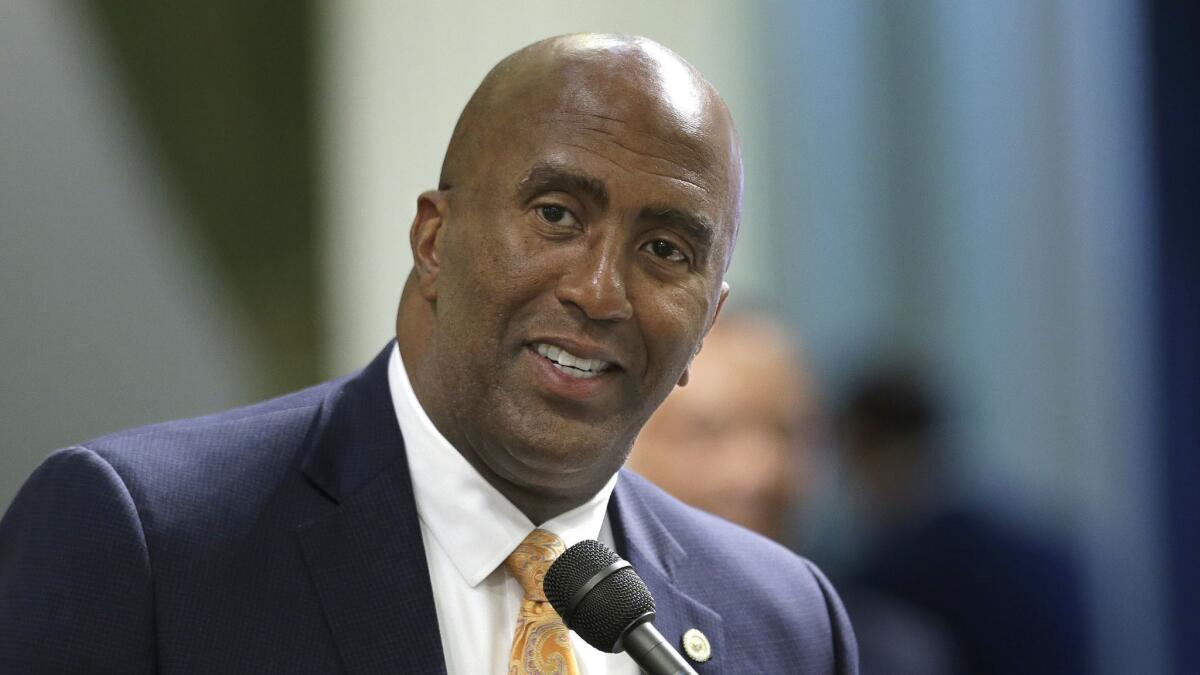
Assemblyman Jim Cooper (D-Elk Grove)
Annual public pension from previous job: $173,820
Prior government service: Cooper retired at 50 as a captain with the Sacramento County Sheriff's Department.
Total annual compensation (minus per diem): $281,000
Assemblyman Jim Cooper (D-Elk Grove) retired four years ago at 50 as a captain with the Sacramento County Sheriff's Department after serving 30 years in law enforcement. Cooper, who collects an annual pension of $173,820 on top of his legislative pay, acknowledged that the pension systems face multiple challenges, including pressures from legislators to divest from the gun and oil industries.
“I do not believe that early retirement is the leading cause of the unsustainability of our state pension system,” he said. “Individuals that work 25 to 30 years in any profession regardless of their age deserve the dignity to retire, and public safety personnel are no different.”
Law enforcement unions have argued for earlier retirement ages than those for other government workers because of the physical and mental stresses of the job.
“Public safety careers are inherently higher intensity and risk than other professions, and employees often start their careers earlier than others, subsequently earning retirement earlier,” Cooper said.
Some taxpayer activists have proposed that California’s public pension funds adopt restrictions like those by the Social Security system, which reduces retirement pay if the person goes back to work and earns more than a small salary.
“There should be some change made that says as long as you are employed, you have a job, maybe it’s as a state legislator, you don’t collect your pension, you wait until you are at retirement age like the rest of us when we get Social Security,” Dean said. “There is just not enough money in the system to do it.”
Nation said there are other factors, including contribution amounts by stakeholders, that play a much larger role in the financial strength of a pension fund than double dipping, which he estimated is taking place with only a small fraction of public pension recipients.
Those benefiting from the current system will make changing the pension laws “very difficult,” he said, but changes are “absolutely essential if we want the systems to survive.”
Other California legislators who ‘double dip’

Senate President Pro Tem Toni Atkins (D-San Diego)
Annual public pension for previous job: $30,000
Prior government service: Atkins served on the San Diego City Council before she was elected to the Legislature.
Total annual compensation (minus per diem): $153,700 (Atkins’ legislative salary as Senate leader is $123,326.)
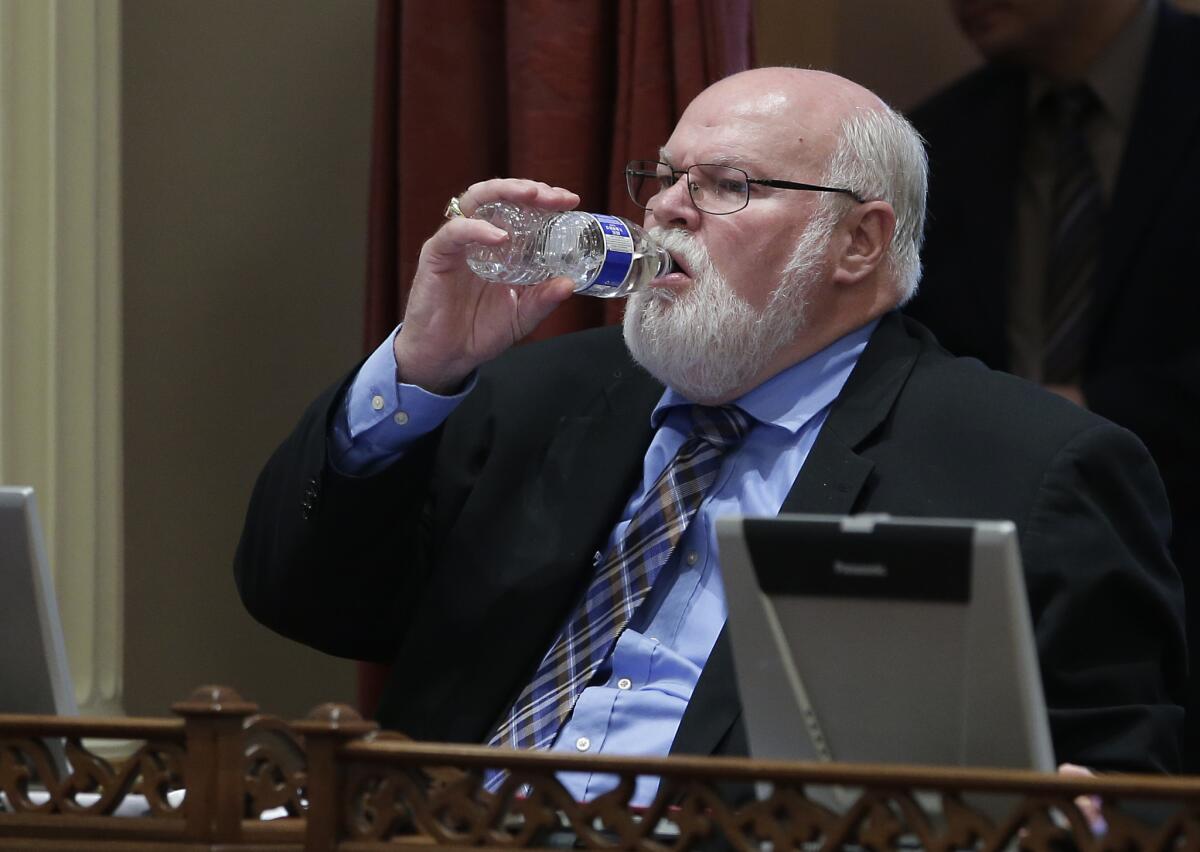
Sen. James Beall (D-San Jose)
Annual public pension from previous job: $41,844
Prior government service: Beall is a former member of the Santa Clara County Board of Supervisors and former urban planner for the cities of Santa Cruz and Los Gatos.
Total annual compensation (minus per diem): $149,000
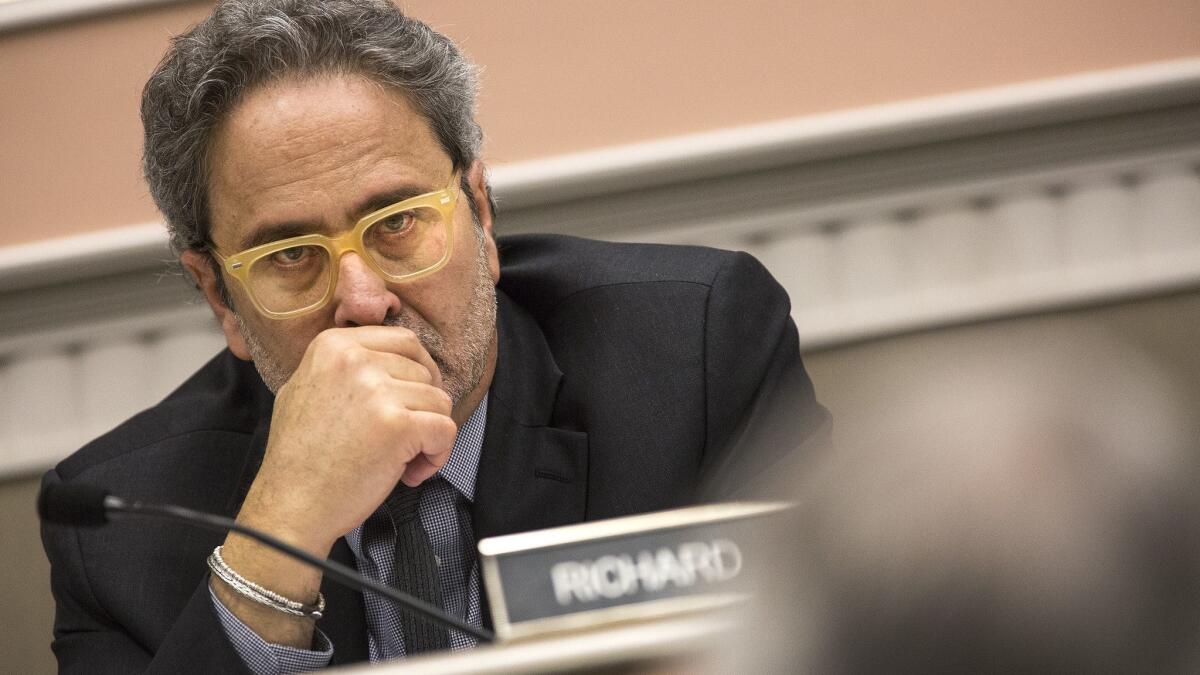
Assemblyman Richard Bloom (D-Santa Monica)
Annual public pension from previous job: $5,239
Prior government service: Bloom retired at 59 after serving on the Santa Monica City Council.
Total annual compensation (minus per diem): $112,400
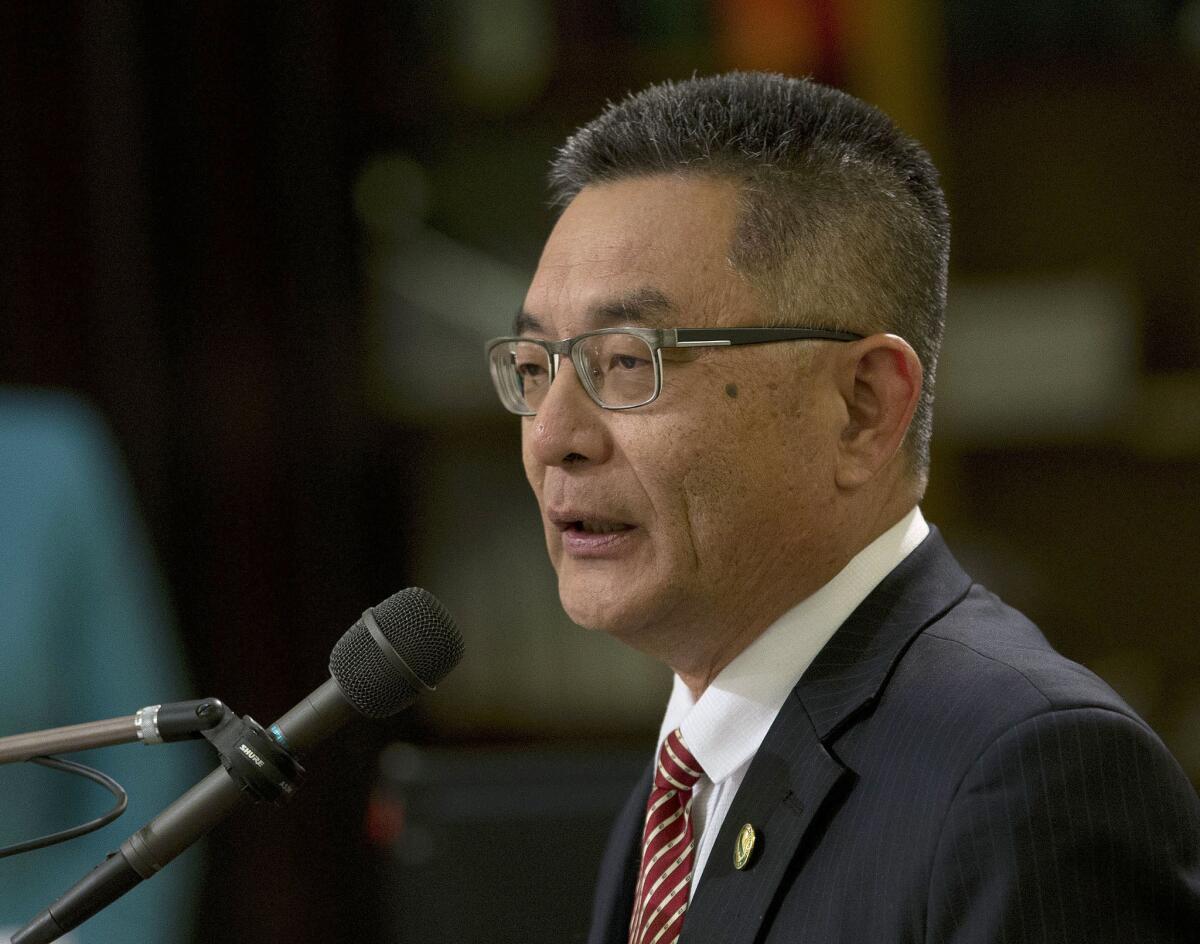
Assemblyman Kansen Chu (D-San Jose)
Annual public pension from previous job: $18,276
Prior government service: Chu retired at 63 after serving on the San Jose City Council.
Total annual compensation (minus per diem): $125,500
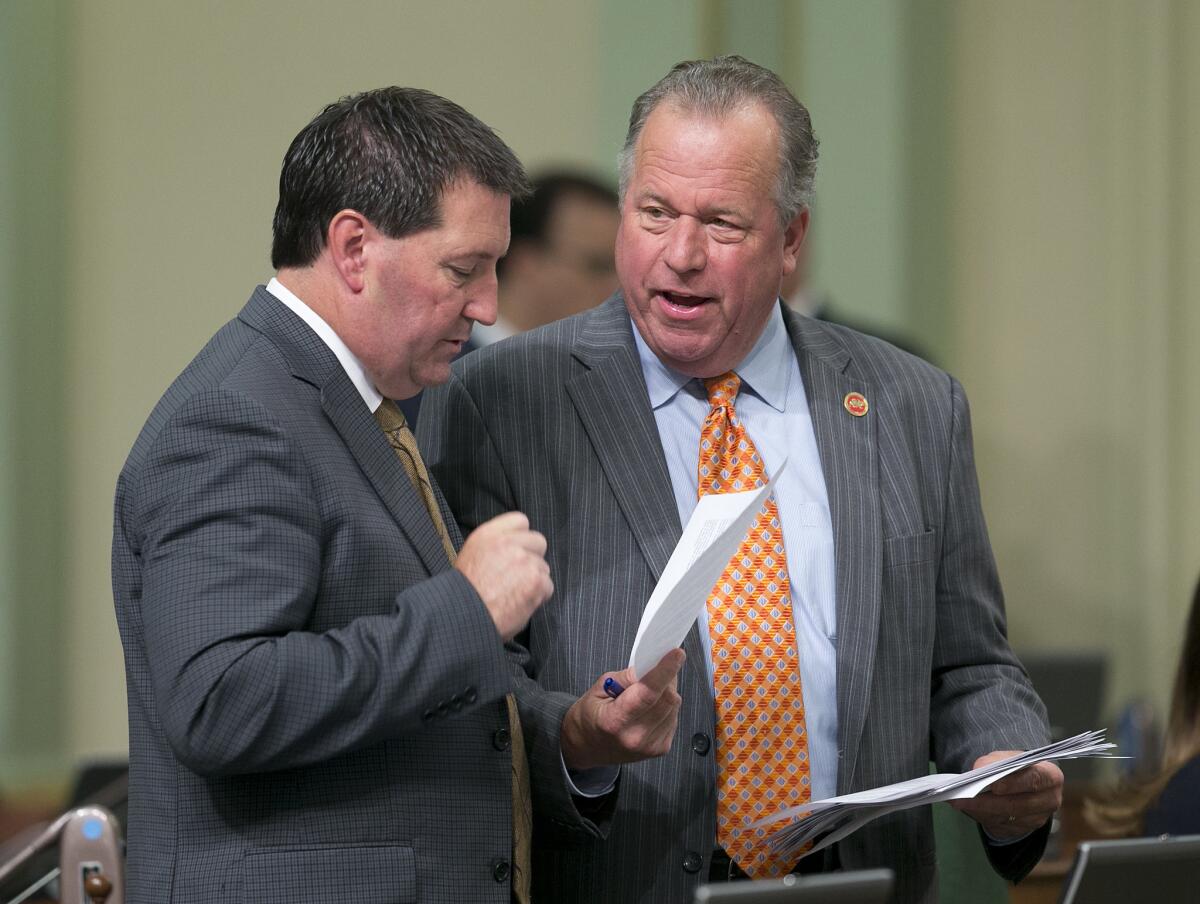
Sen. Bill Dodd (D-Napa)
Annual public pension for previous job: $27,700
Prior government service: Dodd retired at 58 from the Napa County Board of Supervisors.
Total annual compensation (minus per diem): $134,900

Sen. Jean Fuller (R-Bakersfield)
Annual public pension from previous job: $112,980
Prior government service: Fuller spent 30 years in public education and was superintendent of the Keppel Union School District.
Total annual compensation (minus per diem): $220,200
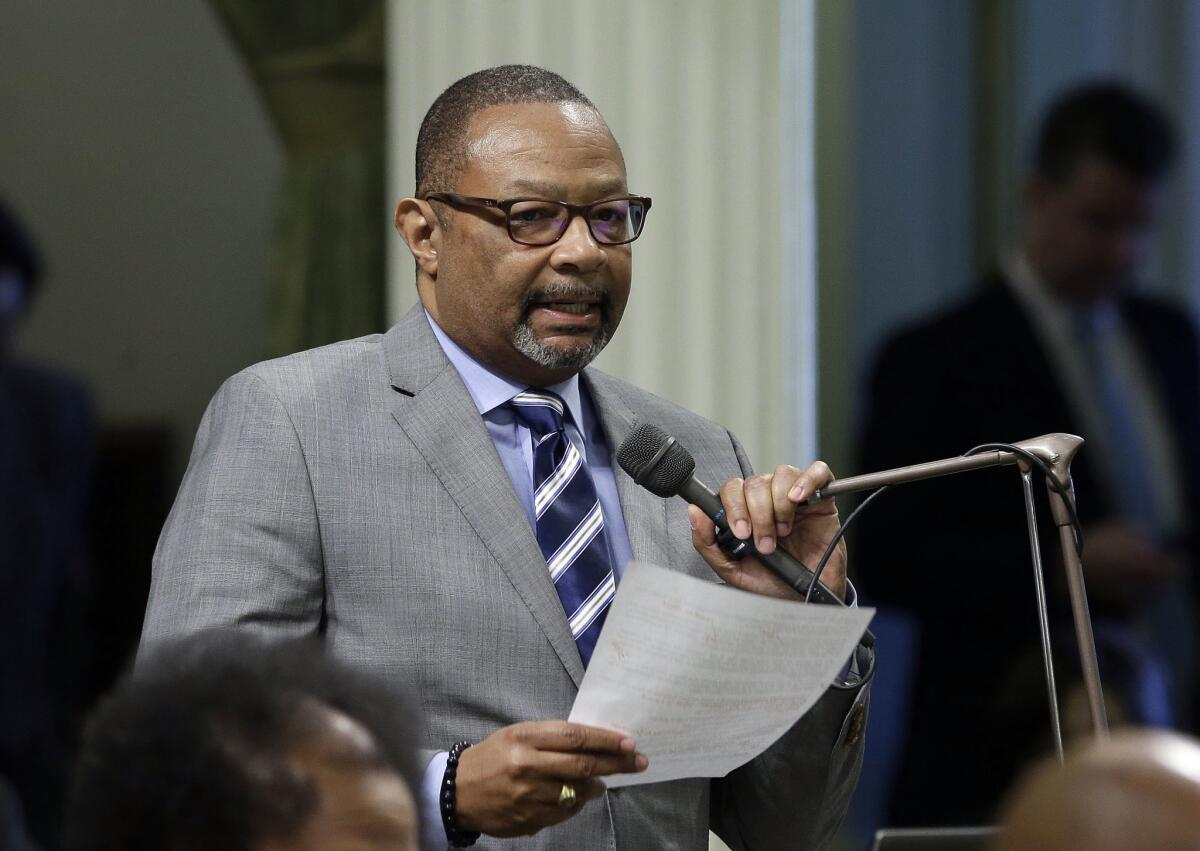
Assemblyman Reggie Jones-Sawyer (D-South Los Angeles)
Annual public pension from previous job: $83,544
Prior government service: Jones-Sawyer worked for the city of Los Angeles in roles including director of asset management and assistant deputy mayor.
Total annual compensation (minus per diem): $190,700
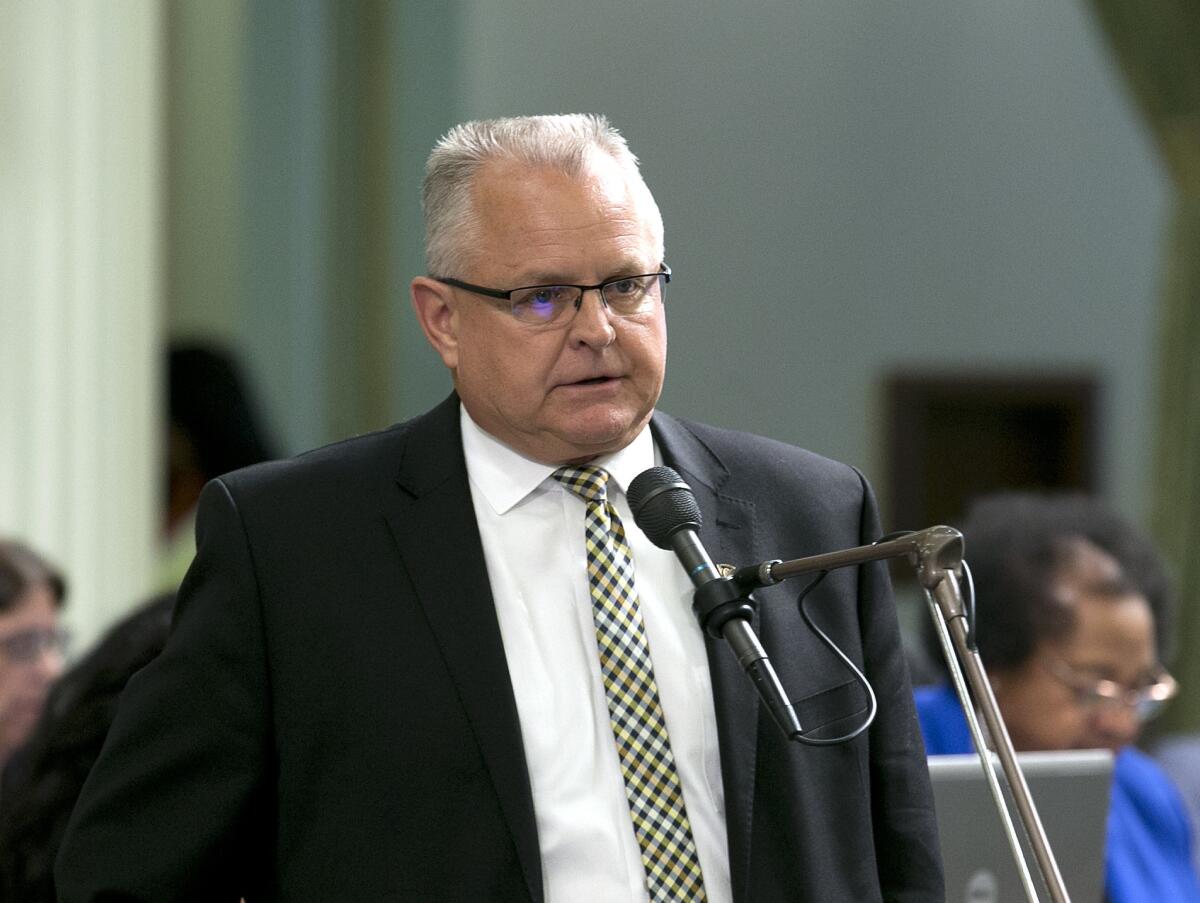
Assemblyman Tom W. Lackey (R-Palmdale)
Annual public pension from previous job: $111,792
Prior government service: Lackey retired at 54 as a sergeant with the California Highway Patrol.
Total annual compensation (minus per diem): $219,000
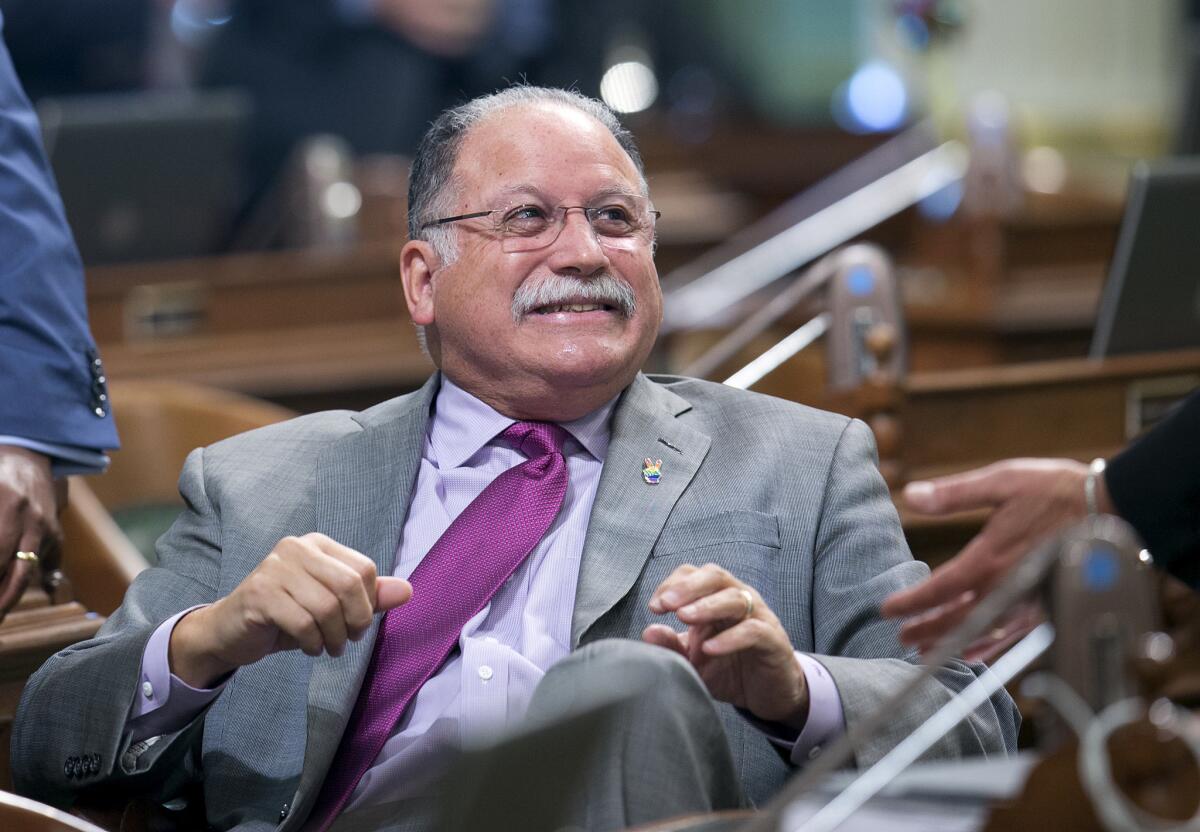
Assemblyman José Medina (D-Riverside)
Annual public pension from previous job: $63,420
Prior government service: Medina retired at 59 after many years as a teacher with the Riverside Unified School District.
Total annual compensation (minus per diem): $170,600

Sen. Richard Roth (D-Riverside)
Annual public pension from previous job: $45,566
Prior government service: Roth is a former major general in the U.S. Air Force.
Total annual compensation (minus per diem): $152,800

Assemblywoman Shirley Weber (D-San Diego)
Annual public pension from previous job: $103,000
Prior government service: Weber taught at Cal State L.A. and Los Angeles City College. She was also a professor at San Diego State.
Total annual compensation (minus per diem): $210,200
Twitter: @mcgreevy99
UPDATES:
2:35 p.m. April 6: This article was updated with information on Senate President Pro Tem Toni Atkins’ pension.
This article was originally published at 12:05 a.m. April 4.
Get the L.A. Times Politics newsletter
Deeply reported insights into legislation, politics and policy from Sacramento, Washington and beyond. In your inbox twice per week.
You may occasionally receive promotional content from the Los Angeles Times.








